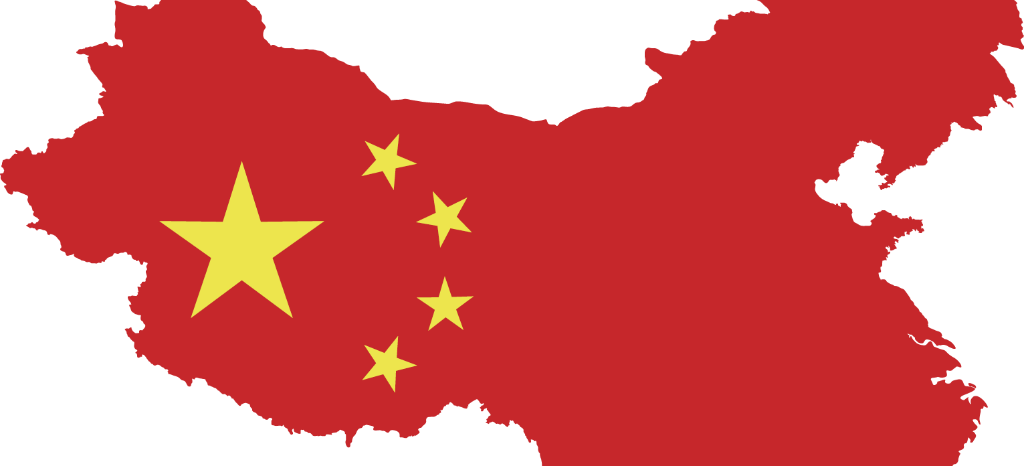Market expansion through certificate of conformity for China
You would like to export your goods to China? We can provide you with the necessary certificates of conformity for a wide range of products.
Our experts will check for you which certificates you need to export your products to China and support you in issuing certificates of conformity. Contact us now!
China Compulsory Certification (CCC)
The CCC certification is the most important mandatory approval in China. All regulated products imported into and sold in China have to be certified.
Following the 2018 catalogue amendment, CCC-Scope covers 19 product categories, such as electrical wires and cables, circuit breakers, installation protection and terminal equipment, low-voltage equipment, household appliances, some automotive components, etc. From 1.10.2019, explosion-proof electrical appliances, household gas appliances and household refrigerators with an effective capacity of more than 500L will be subject to approval. We will be happy to provide you with the complete list of products which require anapproval.
Products seeking CCC certification must be tested in an accredited laboratory in China to GB standards, and the manufacturing facility must also be audited before a CCC certificate is issued.
The certificate is valid for 5 years and can be extended. In order to guarantee the validity of the certificate, a follow-up inspection takes place annually.
TÜV Rheinland (Shanghai) Co., Ltd. is accredited to perform the flammability test for interior materials and TÜV Rheinland (Guangdong) Ltd. is accredited to perform the safety test for luminaires.
TÜV Rheinland has many years of experience with this procedure and will support you in the documentation, preparation of the factory inspection and certification by the authorities. This makes us a reliable partner and we are happy to support you on your way to market entry in China.
China Energy Label (CEL)
The registration of the China Energy Label (CEL) was introduced in 2005. The State Administration for Market Regulation (SAMR), the National Development and Reform Commission (NDRC) and the Certification and Accreditation Administration of China (CNCA) determine the regulations and the registration procedure.
China National Institute of Standardization (CNIS) is the only certification body for CEL registration.
A total of 37 product categories are currently subject to certification: Household appliances such as refrigerators, air conditioners, fans, small and medium-sized three-phase asynchronous motors, etc.
No factory inspection is required for certification, but local testing must be performed in China by an accredited laboratory. After that the tested products have to be registered with CNIS.
TÜV Rheinland Qingdao is accredited for testing commercial refrigerators with built-in liquefaction plants.
China Water Efficiency Label (CWEL)
In order to promote products with high efficiency in water consumption and water source protection, the China Water Efficiency Label became mandatory in 2018.
The authorities General Administration of Quality Supervision, Inspection and Quarantine (AQSIQ), National Development and Reform Commission (NDRC) and Ministry of Water Resources (MWR) have published Decree No 6 - "Management Methods on Water Efficiency Label".
The tests may be carried out in a CNAS/CNIS recognised laboratory or in a recognised internal laboratory of the manufacturer.
Water closets have been regulated under CWEL since 01.08.2018, further products will soon be added to the catalogue requiring approval.
Radio license: State Radio Regulatory Committee (SRRC)
The State Radio Regulatory Committee is the only certification body for radio licensing in China. All devices with radio function in regulated frequency ranges must be approved. Excludes RFID (13.56MHz), wireless charging (125KHz), etc. WiFi (2.4G, 5.8G, 5.1G), BT and 5.4G (Spread Spectrum) still have to be SRRC certified. Since 2014 approvals for modules are possible as well.
No factory inspection is required for certification, but local testing in China at one of the six accredited laboratories must be carried out.
After the certificate for wireless has been issued, a CMIIT ID will be issued as well and has to be fixed on the type plate.
Network Access License (NAL)
All devices which provide access to public networks must obtain NAL approval from the Telecommunication Equipment Certification Center (TECC).
The products must be tested locally in accredited laboratories. This is followed by a certification by the TECC authority, which is valid for 3 years.
China RoHS 2
China RoHS came into effect on 01.03.2017. Similar to the EU RoHS Directive, the intention is to restrict the spread of certain toxic substances in electronic products so that they only enter the environment to a lesser extent. For all Electronic Information Products (EIP) the RoHS requirements must be proven by self-declaration.
As of 12.03.2019, 12 Electrical and Electronic Products (EEPs) listed in the catalogue must comply with the restrictions on hazardous substances: Refrigerators, air conditioners, washing machines, electric water heaters, printers, mobile communication equipment, etc. The conformity assessment system is introduced in an appropriate form to certify compliance with the tolerated maximum concentration values (MCVs) of the listed products.
The State Administration for Market Regulation (SAMR) and the China Ministry of Industry and Information Technology (MIIT) was published on 17.05.2019 a Notice - Implementing Agreement for the Conformity Assessment System for the Restricted Use of Hazardous Substances in Electrical and Electronic Products, which finally defines the long-awaited Conformity Assessment System.
Voluntary admission: China Quality Certification (CQC)
CQC certification is a voluntary form of certification in China for those products that do not fall under CCC but must meet GB standards.
The certification procedure is similar to the CCC certification: type testing in locally accredited laboratories, production inspection and the annual follow-up inspection must also be carried out.
TÜV Rheinland has been working closely with the China Quality Certification Center (CQC) for a very long time. This enables us to ensure comprehensive and very accurate preparation and support during the audits and to guide you safely through the certification process.



